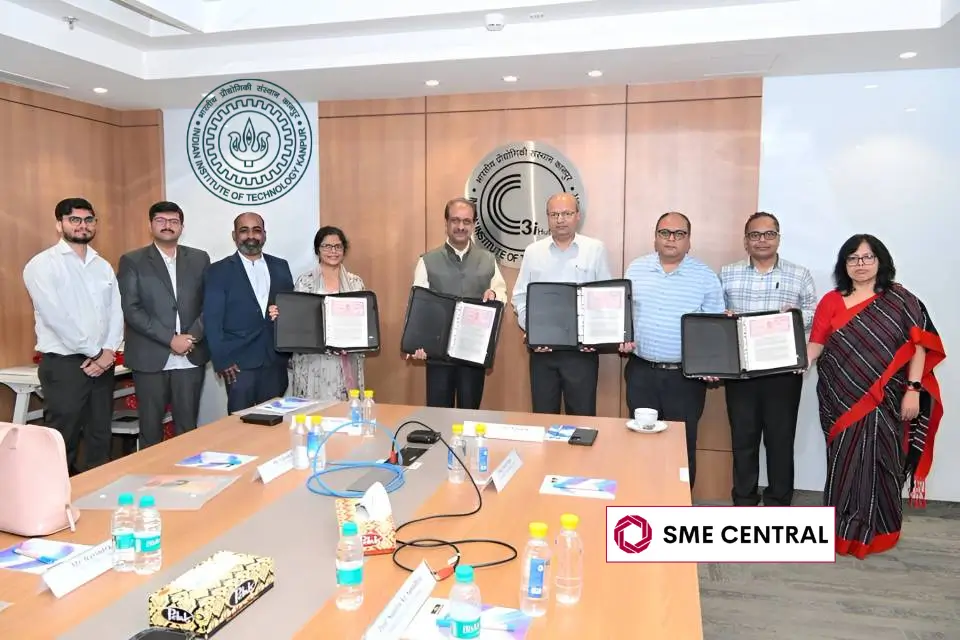In a landmark development for India’s mobility sector, the Indian Institute of Technology Kanpur’s C3iHub and the Automotive Research Association of India (ARAI) have signed a Memorandum of Understanding (MoU) to advance research and innovation in automotive cybersecurity.
The agreement brings together a premier academic and research institution, a government-backed cybersecurity hub, and India’s leading automotive R&D body to address one of the most pressing challenges in the era of connected and autonomous vehicles: ensuring cyber-resilient mobility systems.
A Strategic Alliance at the Right Time
The MoU, signed by Dr. Reji Mathai (Director, ARAI), Prof. Tarun Gupta (Dean of R&D, IIT Kanpur), and Dr. Tanima Hajra (CEO, C3iHub), with the presence of Prof. Manindra Agrawal (Director, IIT Kanpur), underscores a growing recognition that automobiles today are not merely mechanical machines, but software-driven systems vulnerable to cyberattacks.
As vehicles become increasingly connected — integrating sensors, IoT, autonomous decision-making systems, and cloud-based services — they also open up potential attack surfaces. From remote hijacking of vehicles to disruption of mobility infrastructure, the threats are no longer theoretical but real.
Speaking at the event, Prof. Agrawal noted:
“With automobiles becoming increasingly software-driven, cybersecurity has emerged as a critical pillar for ensuring safety and reliability. This collaboration with ARAI will allow us to jointly develop solutions and build capacity in automotive security research.”
What This Collaboration Means
The C3iHub–IIT Kanpur–ARAI partnership is expected to focus on:
- Joint R&D in Automotive Cybersecurity – Developing technologies that can detect, prevent, and mitigate cyberattacks on connected vehicles.
- Innovation and Technology Translation – Moving from lab research to deployable tools and frameworks for industry adoption.
- Capacity Building – Training engineers, researchers, and policymakers in the evolving landscape of automotive security.
- Industry Collaboration – Providing secure and validated frameworks to automotive manufacturers for compliance with national and international standards.
Dr. Mathai of ARAI highlighted the alignment with India’s mobility vision:
“ARAI has always been at the forefront of advancing technologies in mobility and safety. Partnering with IIT Kanpur and C3iHub will enable us to combine our expertise and contribute towards developing secure, sustainable, and future-ready automotive solutions.”
About the Institutions
- ARAI (Automotive Research Association of India), founded in 1966 and headquartered in Pune, plays a pivotal role in R&D, testing, certification, and compliance in the automotive sector. It is recognized by the Government of India as the benchmark authority for automotive technologies and regulations.
- C3iHub (Cybersecurity Technology Innovation Hub at IIT Kanpur), recently upgraded to a Technology Translation Research Park (TTRP), is part of the National Mission on Interdisciplinary Cyber-Physical Systems. It focuses on cybersecurity solutions across sectors, detecting vulnerabilities, building security tools, and supporting start-ups in the cybersecurity ecosystem.
- IIT Kanpur, an Institute of National Importance established in 1959, has a legacy of excellence in science, engineering, and research. With over 9,500 students and 590+ faculty, the institute has long been a crucible of innovation in India’s technological landscape.
Industry & Market Implications
For the automotive industry, this C3iHub–IIT Kanpur–ARAI collaboration signals a strategic step forward. With India pushing for electrification, connected mobility, and smart infrastructure, cybersecurity compliance is no longer optional — it is a regulatory and consumer trust necessity.
Global automakers are already grappling with stringent EU and US cybersecurity regulations, and India is set to follow suit. Partnerships like C3iHub–ARAI position the country to not only meet but set benchmarks in automotive cybersecurity.
For investors and industry watchers, this move highlights the increasing intersection of automotive technology and cybersecurity. Firms engaged in mobility, IoT, and security solutions could see enhanced opportunities, especially as collaborations like this pave the way for indigenous standards, tools, and IP creation.

Looking Ahead
This alliance is more than an academic-industry handshake; it is a forward-looking initiative aimed at future-proofing India’s mobility sector. As connected and autonomous vehicles inch closer to mainstream adoption, ensuring their resilience against cyber threats will be as critical as crash tests and emission norms once were.
The C3iHub–IIT Kanpur–ARAI collaboration is thus not just about safeguarding vehicles, but about securing the future of mobility itself.

